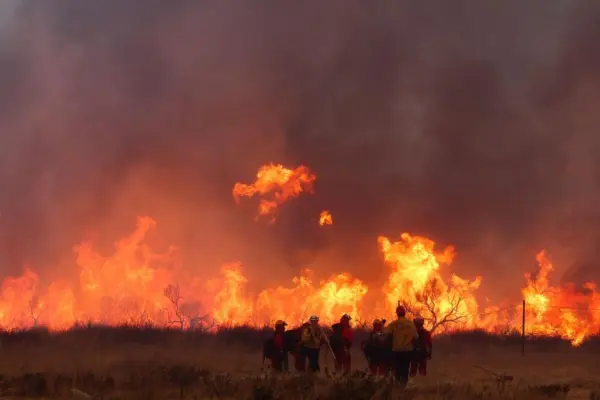IPCC Report Issues Dire Warning for Humanity, But It’s Too Late!
In the current climatic scenario, no one can deny the omnipresent phenomenon of climate change. Rapid deforestation, pollution, carbon emissions and other anthropogenic activities have triggered a chain reaction in the climate. The most recent analyses of these changes were presented by the latest report of Intergovernmental Panel for Climate Change (IPCC), dubbed as a “code red for humanity,” which issued a dire warning.
The UN report has painted a grim picture of the future of the planet as it seems past the point of no return. The study warns of exacerbating extreme heatwaves, droughts & flooding, and a key temperature limit being broken in just over a decade.
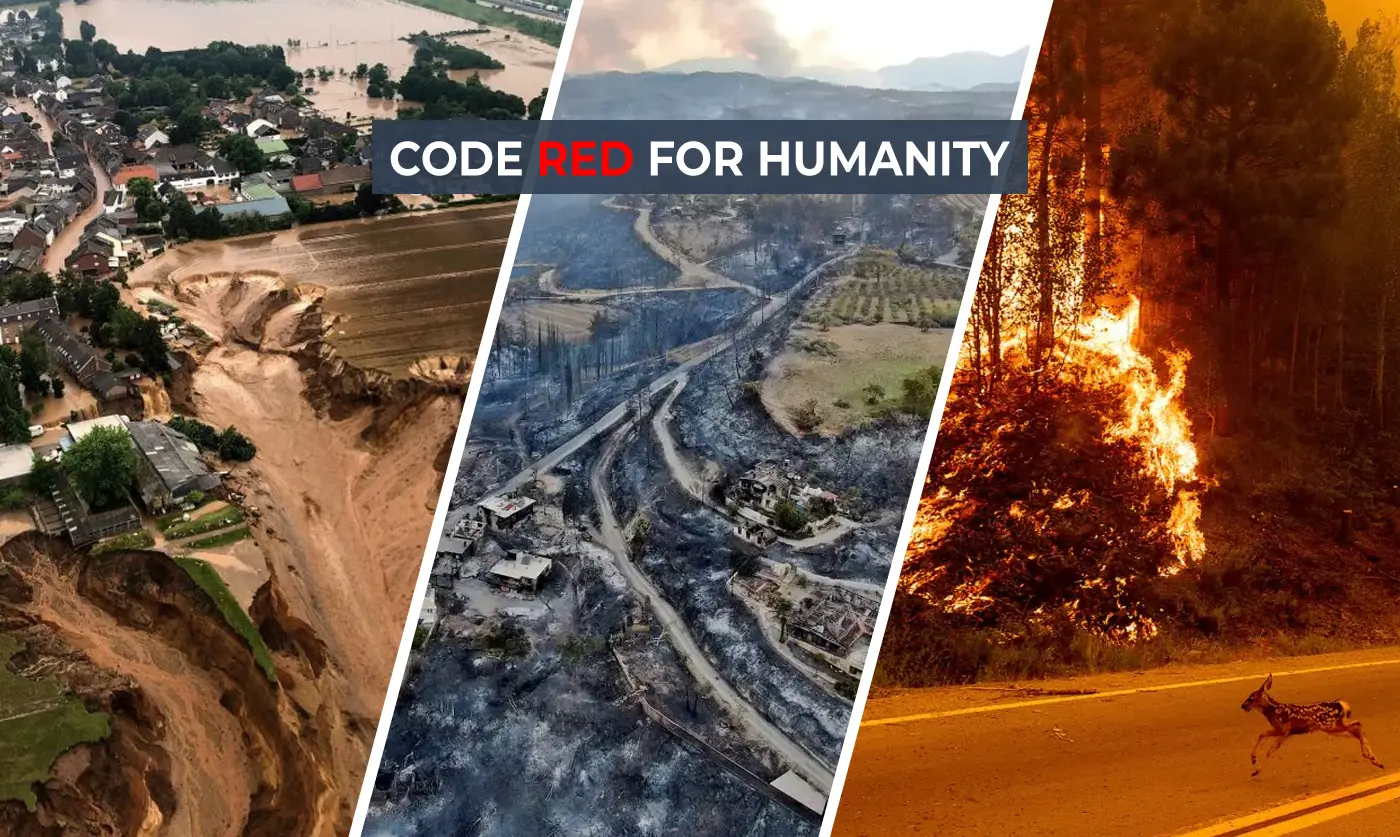
Although scientists are optimistic that a catastrophe can be avoided if the world acts fast and there is hope the big reductions in greenhouse gas emissions could stabilize the rising temperatures; it is highly unlikely, given that most of the nations have failed to meet their Paris Agreement targets on climate action.
IPCC Report: A Dire Warning for Humanity
This report is the first major analyses of the science of climate change since 2013. Its release comes three months before a chief climate summit in Glasgow known as COP26. The report states that;
It is unequivocal that human influence has warmed the atmosphere, oceans and land.
Issuing a dire warning for humanity, the authors of the IPCC report have said that since 1970, global surface temperatures have increased faster than in any other 50-year period over the last 2,000 years. The changing climatic patterns have already begun to wreak havoc in many regions across the globe.
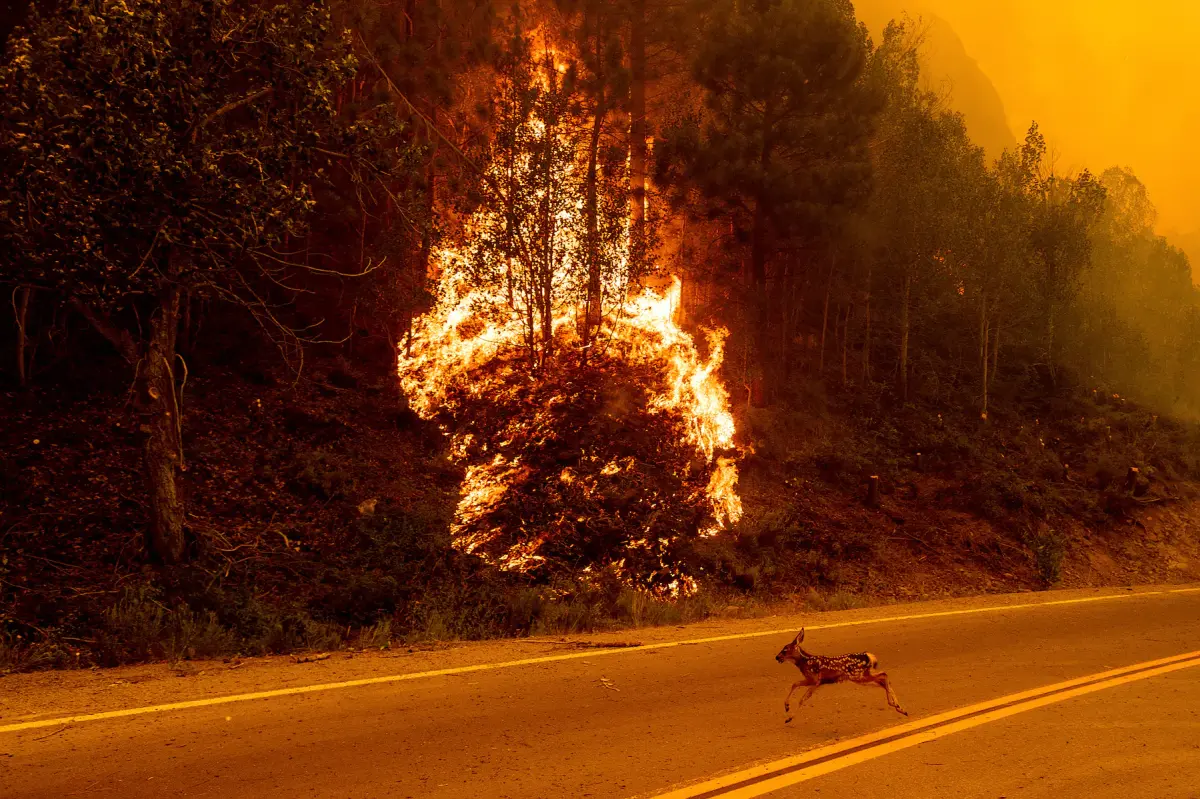
Image: Noah Berger/AP
Whether it is heatwaves – like the ones recently witnessed in Greece and the Pacific Northwest, or floods – like those in Germany and China; their attribution to human impact has reinforced over the last decade or so.
Inger Andersen, executive director of the United Nations Environment Program, said,
Climate change is a problem that is here now. Nobody’s safe and it’s getting worse faster. We must treat climate change as an immediate threat.
According to the report, nearly every region of the planet outside of Polar Regions have witnessed a rise in extreme heat events since the 1950s. Heat has also exacerbated drought in some regions of the world, which previously were experienced once every decade are now 70 percent more frequent than they were in the preindustrial era.
Also Read:
• IPCC’s Report Warns India of Impending Climate Change Conditions and Its Effects
• With Increasing Flooding Episodes Millions Will Suffer More in the Future
• 60+ Distressing Images of the Worldwide Wildfire Season 2021
The repercussions of the human-induced climate crisis are diverse and far-fetched and the new IPCC report is a “code red for humanity.”
Major Highlights of IPCC Report
The IPCC is considered a leading authority on climate science which provides objective scientific data about changing climatic patterns and their various impacts and risks. Over 230 authors from 66 countries prepared the latest report, which has come to precisely determine the impacts of climate change on individual weather events since the 2013 report.
Here are some of the major key points regarding the irreversible impacts of climate change that the IPCC report highlighted with a dire warning for humanity.
Much of Climate Change is Human-Induced
The IPCC report strongly asserted that this climate change is human-induced. The very first line of the report summary reads – “It is unequivocal that human influence has warmed the atmosphere, ocean and land.” All the anthropogenic activities and fossil fuel consumption have contributed vastly to carbon emission, which are the major drivers of climate change.
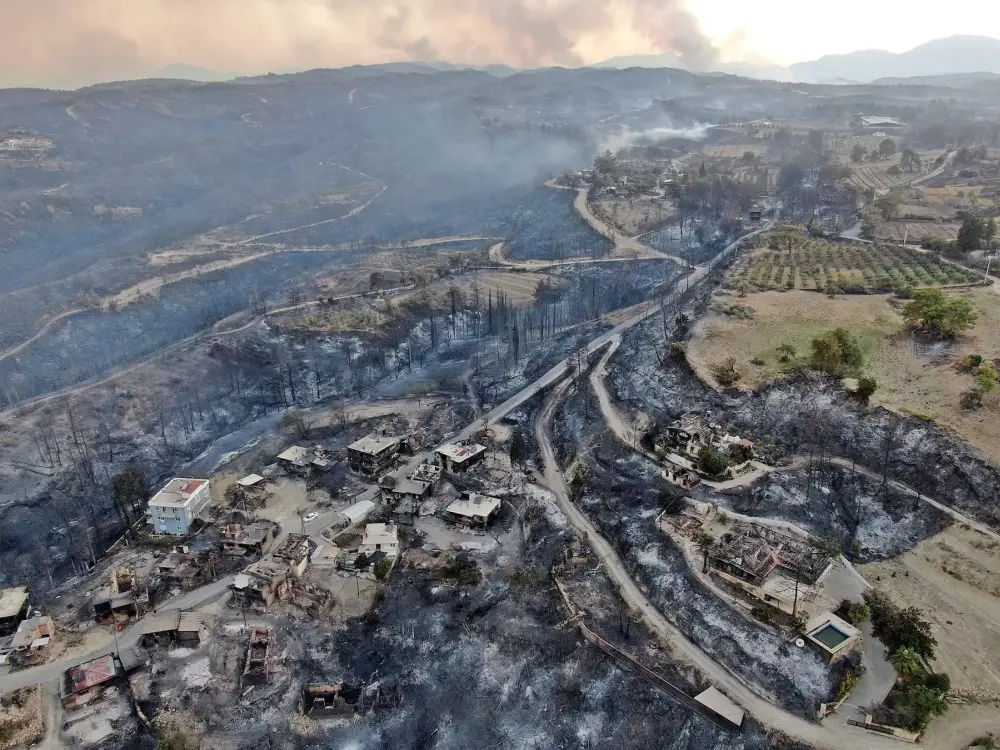
Image: Suat Metin/IHA/Ap
Deforestation, excessive mining, greenhouse gas emissions from livestock rearing for meat consumption and ecological imbalance; all these human-driven activities have contributed to climate change, which in turn has jeopardized the life on the planet.
Worsening Weather Events
There is no denying that weather events have become more frequent and intense in the past few years, not even the “so-called” climate deniers can deny it anymore. From devastating floods to scorching heatwaves – people are experiencing worsening weather events throughout the globe.
Once thought to be rare and unprecedented, these weather extremes are becoming more common and more intense. Severe heatwaves are now happening once every decade, tropical cyclones are hitting with severe intensity, droughts have become more common, wildfires are laying waste to towns and forests alike and floods have become frequent and devastating.
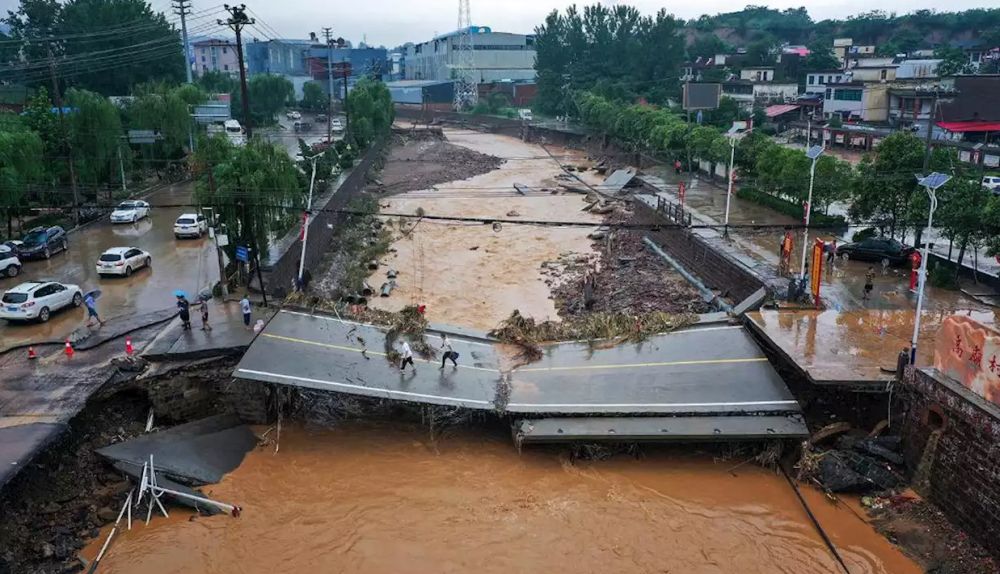
Image: STR/AFP
While scientific advances in the last decade or so have helped scientists detect if the changing climatic patterns have triggered or worsened specific weather events, the impending catastrophe still remains to be faced.
Repercussions of Global Warming
Describing the continued and rapid rise in global temperatures, the report explains that the further impact of global warming mostly depends on how dramatically the world cuts emissions. However, given the current scenario and the fact that most nations have failed to cut their greenhouse gas emissions, halting the temperature rise is quite theoretical.
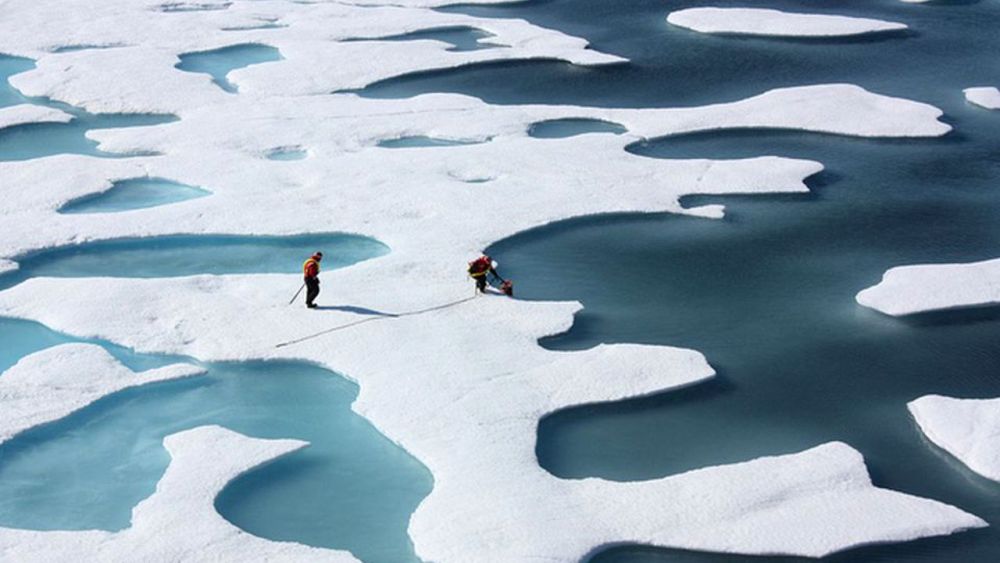
Image: Kathryn Hansen/NASA
Besides, the planet has reached a point where even the severest of cuts are unlikely to prevent global warming of 1.5 degrees Celsius above preindustrial temperatures. Without any immediate action and emission reduction, average temperatures are most likely to rise past 2 degrees Celsius by the end of the century.
Arctic and Siberian Permafrost Thaw
The recent report has juxtaposed the past analyses and predictions about the Arctic and Siberian permafrost melting. It revealed that the Arctic summers could soon be free of ice, most probably by 2050. The region has become the fastest-warming area of the globe, which is heating up at least twice as fast as the global average.
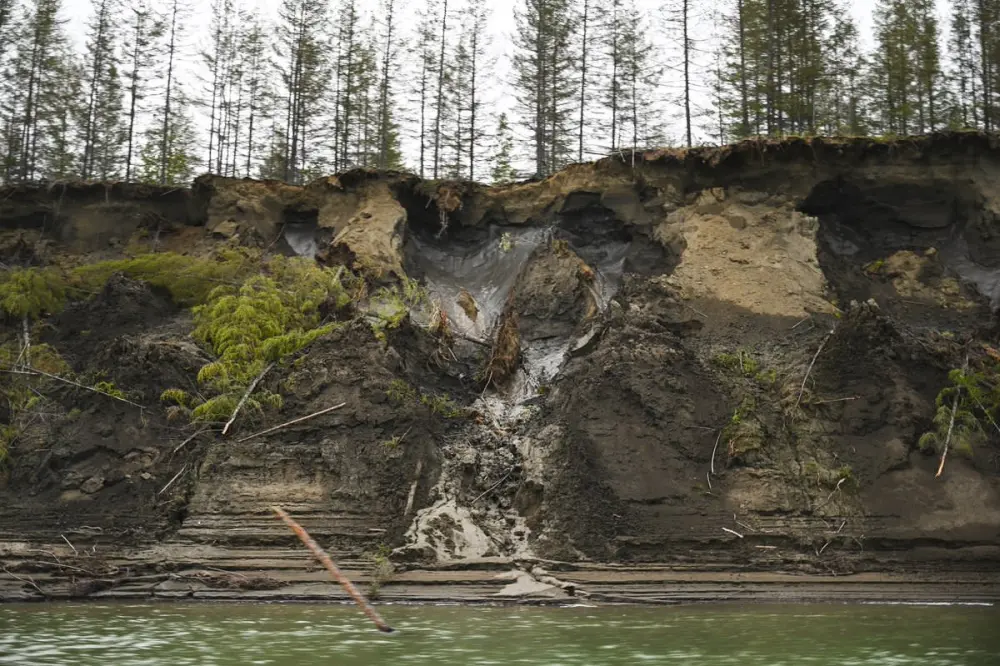
Image: Michael Robinson Chavez/The Washington Post
Amid recent heatwave and wildfires in Siberia, the region is losing ice mass rapidly. While Arctic sea ice levels vary throughout the year, the average lows during summer have been declining since the 1970s and have reached their lowest levels in a thousand years. This melting permafrost also releases methane that contributes to further heating of the planet.
Inevitable Sea-Level Rise
Sea levels will continue to rise for hundreds of thousands of years to come, the report has declared. The inevitable sea-level rise is threatening the coastal regions across the globe. Even if humankind puts a stop to global warming at 1.5 degrees Celsius, the average sea level would still increase about 2 to 3 meters.
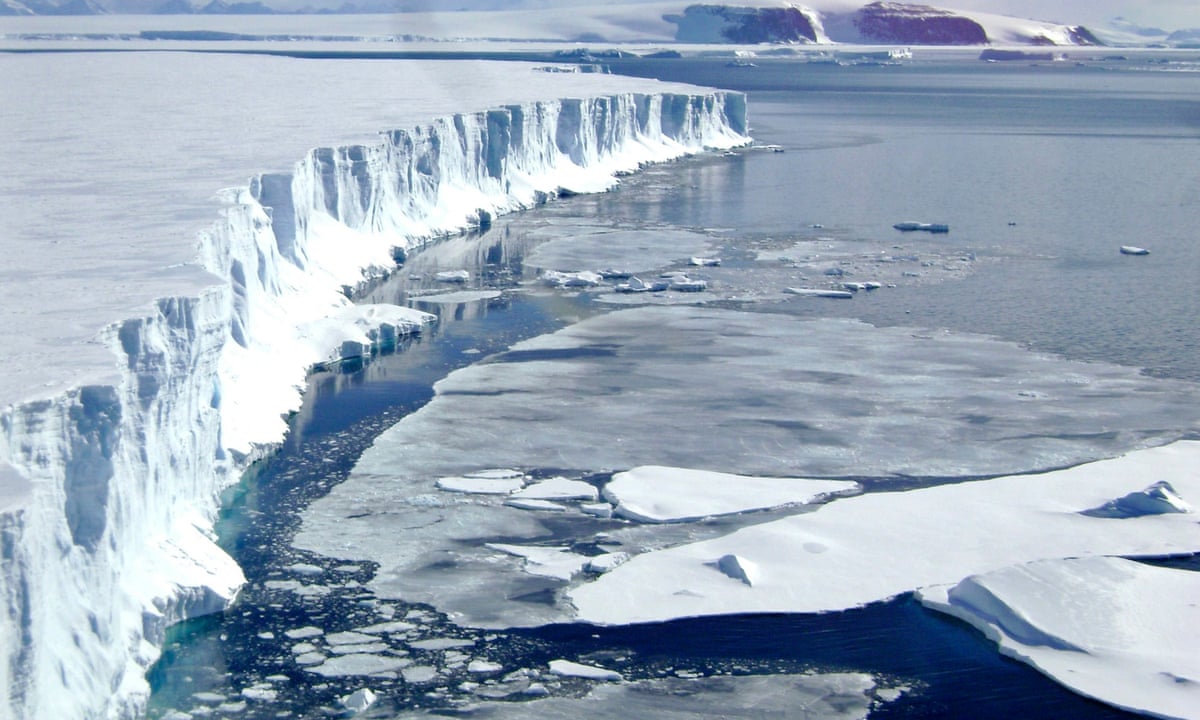
Image: Reuters
As polar ice sheets melt and warming ocean water expands, the sea level rise swiftly. Flooding linked to this phenomenon has nearly doubled in many coastal areas since the 1960s. Scientists have also said that if tipping points trigger extreme global warming, the sea levels could rise over 15 meters by 2300.
Now is The Time to Act
Back in 2015, the member nations at the Paris Agreement decided to limit global warming to 1.5 degrees Celsius and sticking to a “carbon budget,” a term that described how much additional carbon can be added into the atmosphere before that goal becomes impossible to achieve.
Reportedly, nearly 2.4 trillion tons of climate-warming CO2 has been added to the atmosphere since the mid-1800s, the average global temperature has increased by 1.1 degrees Celsius. By that estimate, there are only 400 billion tons more than the atmosphere can take, after that, it will become impossible to sustain life on the planet.
IT’S THE TIME TO ACT OR ELSE WE’ll ALL BE DOOMED!

